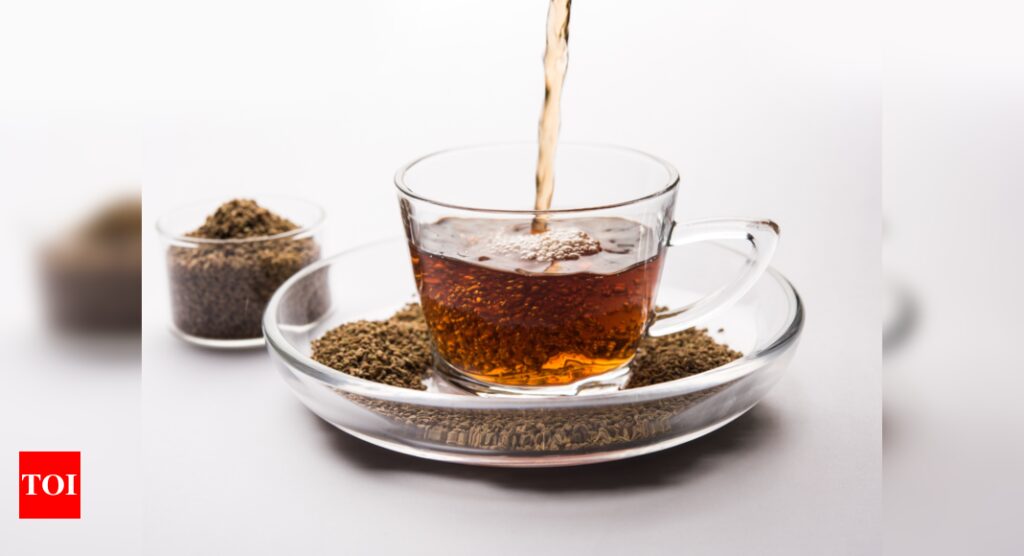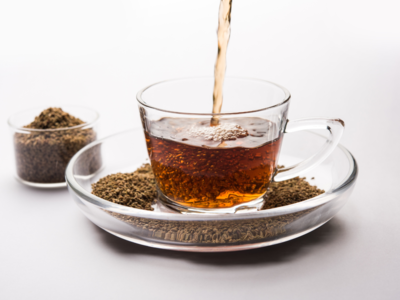7 incredible health benefits of adding Ajwain (carom seeds) to your food

Ajwain’s distinct aroma and taste make it a common ingredient in Indian kitchens. The seeds are versatile in their application, functioning as both a culinary spice and a medicinal supplement. Their multiple health benefits and easy incorporation into daily diets make them a valuable addition to healthy eating practices. Ajwain, also known as carom seeds, has been identified as a significant medicinal herb offering multiple health benefits, according to research published in Phytomedicine and Pharmacognosy Research. The studies highlight seven key benefits, including improved digestion, lower blood pressure, better cholesterol levels, relief from respiratory issues, antibacterial properties, toothache relief, and reduced arthritis pain.
Aids digestion
Carom seeds contain thymol, a compound that enhances gastric juice secretion. This natural process helps alleviate common digestive issues like stomach pain, cramps, bloating, and indigestion. The seeds work by soothing the digestive tract and relaxing gastrointestinal muscles.
Lowers blood pressure
Research published in Phytomedicine demonstrates that carom seed extract effectively reduces blood pressure in rats. The natural compounds, particularly thymol, help relax blood vessels and improve circulation. Studies in Pharmacognosy Research indicate that carom seed extract can lower total cholesterol, triglycerides, and LDL cholesterol while increasing HDL cholesterol. This property helps prevent arterial blockages and promotes heart health.
Helps in cough and cold
The seeds serve as natural expectorants for respiratory issues. Ajwain tea can help clear mucus from airways, providing relief from coughing, colds, and nasal congestion. According to pharmacognosy research, carom seeds show strong antibacterial and antifungal properties. The compounds thymol and carvacrol combat harmful microorganisms like E. coli and Salmonella, which commonly cause foodborne illnesses.
Oral care
The herb’s antibacterial and anti-inflammatory properties make it effective for oral health. It can help fight oral infections and reduce toothache pain when chewed or used as an oil rinse.
Helps in pain relief
Biochemistry Research International reports that carom seeds can help alleviate arthritis pain through their anti-inflammatory properties. The seeds may reduce joint pain and improve mobility in people with inflammatory conditions. There are three recommended ways to consume ajwain. These include drinking ajwain water made by soaking seeds overnight, using ajwain powder mixed with warm water or honey, and preparing ajwain tea by boiling the seeds for five minutes.
Aids weight loss
The seeds may support weight management through improved digestion and metabolism, though they aren’t specifically a weight loss aid. Their antimicrobial and anti-inflammatory properties can benefit skin health, helping with infections, acne, and rashes. Ajwain is believed to help regulate menstrual cycles through hormone-balancing properties. However, healthcare professional consultation is recommended before using it for menstrual issues.
Side effects of ajwain
While generally safe, excessive consumption of ajwain can lead to side effects. These include acidity, acid reflux, and peptic ulcers. High doses of thymol may cause dizziness or nausea. Pregnant women are advised to limit ajwain intake due to potential risks to fetal development. The herb should always be used in moderation to avoid adverse effects.
Healthcare provider consultation is advised before using Ajwain for specific medical conditions. This ensures safe and appropriate usage aligned with individual health needs and circumstances.







